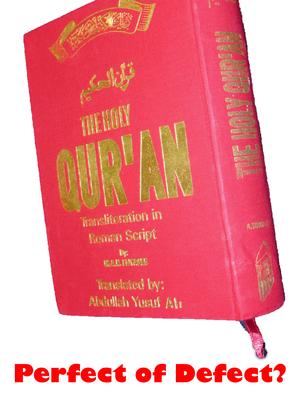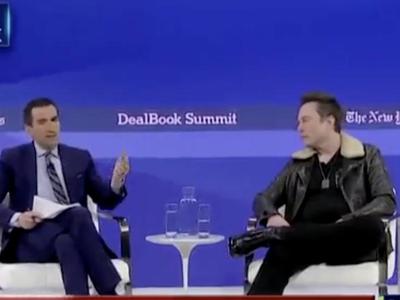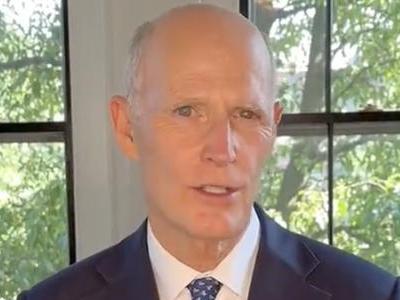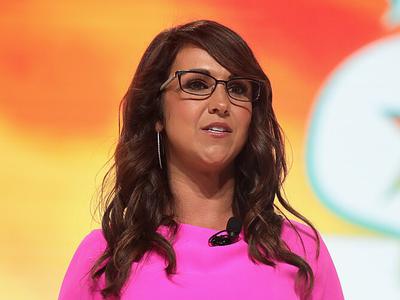
It is well known that IS and other Islamists throughout the world justify many things they do with verses from the Quran. They say that the foundation of their faith is the perfect, unchanged word of Allah and therefore needs to be followed to the letter.
What if it could be proven from established Islamic sources that not just letters have changed but a whole chapter and two verses are missing?
Would IS and other Islamists stop their brutal war if they realized the Quran is not perfect? Could this be the 'magic bullet' the 'holy grail' to bring to an end what looks increasingly like an unwinnable war for all sides?
Please read the evidence that follows and judge for yourself. If convinced, I urge you to send this article to all your friends, your MP, Senator, newspaper, TV and radio station, put a link to it on your facebook, twitter, instagram account, etc. Eventually it will get into the hands of those who apparently have power to change things.
1. Did the prophet of Islam perfectly memorise the Qur’an?
Narrated Aisha: The Prophet heard a man reciting the Qur'an in the mosque and said, "May Allah bestow His Mercy on him, as he has reminded me of such-and-such verses of such a Surah." (Sahih al-Bukhari: vol. 6, bk. 61, no. 556; also Sahih Muslim: bk. 4, no. 1720)
Narrated Abdullah ibn Mas'ud: ... (Muhammad said) I am only a human being and I forget just as you do; so when I forget, remind me ... (Sunan Abu Dawud: bk. 3, no. 1015; also Sahih al-Bukhari: vol. 1, bk. 8, no. 394)
2. Did the prophet of Islam simply recite the Qur’an with no editing?
Narrated Al-Bara: There was revealed:
“Not equal are those believers who sit (at home) and those who strive and fight in the cause of Allah.” (Qur’an 4.95)
The Prophet said, "Call Zaid for me and let him bring the (writing) board, the inkpot and the scapula bone (the pen) ..." Then he said, "Write: ‘Not equal are those Believers who sit...’", and at that time 'Amr bin Um Maktum, the blind man was sitting behind the Prophet. He said, "O Allah's Apostle! What is your order for me (as regards the above verse) as I am a blind man?" So, instead of the above verse, the following verse was revealed:
“Not equal are those believers who sit (at home) except those who are disabled and those who strive and fight in the cause of Allah.” (Qur’an 4.95)
(Sahih al-Bukhari: vol. 6, bk. 61, no. 512; also Sahih Muslim: bk. 20, no. 4676-4677)
3. Did the prophet of Islam have one version of the Qur’an?
Narrated Umar bin Al-Khattab: I heard Hisham bin Hakim reciting Surat Al-Furqan during the lifetime of Allah's Apostle and I listened to his recitation and noticed that he recited in several different ways which Allah's Apostle had not taught me. I was about to jump over him during his prayer, but I controlled my temper and when he had completed his prayer, I put his upper garment around his neck and seized him by it and said, "Who taught you this Surat which I heard you reciting ?" He replied, "Allah's Apostle taught it to me". I said, "You have told a lie, for Allah's Apostle taught it to me in a different way from yours". So I dragged him to Allah's Apostle and said, "I heard this person reciting Surat Al-Furqan in a way which you haven't taught me!" On that Allah's Apostle said, "Release him (Umar) recite, O Hisham!"
Then he recited in the same way I heard him reciting. Then Allah's Apostle said, "It was revealed in this way", and added, "Recite, O Umar", I recited it as he had taught me. Allah's Apostle then said, "It was revealed in this way. This Qur'an has been revealed to be recited in seven different ways, so recite of it whichever is easier for you." (Sahih al-Bukhari: vol. 6, bk. 61, no. 514)
Narrated Ibn Mas'ud: I heard a person reciting a (Quranic) verse in a certain way, and I had heard the Prophet reciting the same verse in a different way. So I took him to the Prophet and informed him of that but I noticed the sign of disapproval on his face, and then he said, "Both of you are correct, so don't differ, for the nations before you differed, so they were destroyed." (Sahih al-Bukhari: vol. 4, bk. 56, no. 682)
Umar bin Al-Khattab and Hisham bin Hakim were from the same tribe, therefore, this difference was not a matter of dialect.
4. Was the Qur’an collected into one book under the supervision of the prophet of Islam?
Narrated Zaid bin Thabit: ... Therefore I (Umar) suggest, you (Abu Bakr) order that the Qur'an be collected." I said to 'Umar, "How can you do something which Allah's Apostle did not do?" ... Abu Bakr kept on urging me to accept his idea until Allah opened my chest for what He had opened the chests of Abu Bakr and 'Umar. So I started looking for the Qur'an and collecting it from (what was written on) palmed stalks, thin white stones and also from the men who knew it by heart, till I found the last verse of Surat At-Tauba (Repentance) with Abi Khuzaima Al-Ansari, and I did not find it with anybody other than him. ... (Sahih al-Bukhari: vol. 6, bk. 61, no. 509)
Ibn Abbas reported Allah's Messenger (may peace be upon him) as saying: “If there were for the son of Adam a valley full of riches, he would long to possess another one like it, and the son of Adam does not feel satisfied but with dust.” And “Allah returns to him who returns (to him)." Ibn Abbas said: I do not know whether it is from the Qur'an or not; and in the narration transmitted by Zuhair it was said: I do not know whether it is from the Qur'an, and he made no mention of Ibn Abbas. (Sahih Muslim: bk. 5, no. 2285)
5. Were there different collections of the Qur’an made by the companions of the prophet of Islam?
Narrated Ibrahim: The companions of 'Abdullah (bin Mas'ud) came to Abu Darda', (and before they arrived at his home), he looked for them and found them. Then he asked them,: "Who among you can recite (Qur'an) as 'Abdullah recites it?" They replied, "All of us." He asked, "Who among you knows it by heart?" They pointed at 'Alqama. Then he asked Alqama. "How did you hear 'Abdullah bin Mas'ud reciting Surat Al-Lail (The Night)?“ Alqama recited:
“By the male and the female.” (Qur’an 92:3)
Abu Darda said, "I testify that I heard the Prophet reciting it likewise, but these people want me to recite it:
“And by Him Who created male and female.” (Qur’an 92:3)
But by Allah, I will not follow them." (Sahih al-Bukhari: vol. 6, bk. 60, no. 468; also Sahih Muslim: bk. 4, no. 1799-1802)
Narrated Ibn Abbas: Umar said, "Ubayy was the best of us in the recitation (of the Qur'an) yet we leave (out) some of what he recites". Ubayy says, "I have taken it from the mouth of Allah's Apostle and will not leave for anything whatever". ... (Sahih al-Bukhari: vol. 6, bk. 61, no. 527)
6. What happened to all of these early different Qur’ans?
"The Syrians," we are told, "contended with the `Iraqis, the former following the reading of Ubayy ibn Ka`b, the latter that of `Abd Allah ibn Mas'ud, each accusing the other of unbelief" (Labib as-Said, The Recited Koran: A History of the First Recorded Version, tr. B. Weis, et al., Princeton, New Jersey: The Darwin Press, 1975, p. 23)
Narrated Anas bin Malik: Hudhaifa bin Al-Yaman came to Uthman at the time when the people (Muslims) of Syria and the people of Iraq were waging war to conquer Armenia and Azarbaijan. Hudhaifa was afraid of their (the people of Syria and Iraq) differences in the recitation of the Qur'an, so he said to 'Uthman, "O chief of the Believers! Save this nation before they differ about the Book (Quran) as Jews and the Christians did before." So 'Uthman sent a message to Hafsa saying, "Send us the manuscripts of the Qur'an so that we may compile the Qur'anic materials in perfect copies and return the manuscripts to you."
Hafsa sent it to 'Uthman. 'Uthman then ordered Zaid bin Thabit, 'Abdullah bin Az-Zubair, Said bin Al-As and 'AbdurRahman bin Harith bin Hisham to rewrite the manuscripts in perfect copies. 'Uthman said to the three Quraishi men, "In case you disagree with Zaid bin Thabit on any point in the Qur'an, then write it in the dialect of Quraish, the Qur'an was revealed in their tongue." They did so, and when they had written many copies, 'Uthman returned the original manuscripts to Hafsa. 'Uthman sent to every Muslim province one copy of what they had copied, and ordered that all the other Qur'anic materials, whether written in fragmentary manuscripts or whole copies, be burnt. ... (Sahih al-Bukhari: vol. 6, bk. 61, no. 510)
7. Did all of the companions of the the prophet of Islam agree with Uthman’s actions?
Narrated Masruq: ... I heard the Prophet saying, "Take (learn) the Qur'an from four (men): `Abdullah bin Masud, Salim, Mu'adh and Ubai bin Ka'b." (Sahih al-Bukhari: vol. 6, bk. 61, no. 521)
Narrated Abdullah bin Masud: The Prophet said to me, "Recite (the) Quran to me." I said to him. "Shall I recite (it) to you while it has been revealed to you?" He said, "I like to hear it from another person." (Sahih al-Bukhari: vol. 6, bk. 61, no. 576)
'Abdullah (b. Mas'ud) reported that he said to his companions to conceal their copies of the Qur'an and further said: He who conceals anything he shall have to bring that which he had concealed on the Day of Judgment, and then said: After whose mode of recitation do you command me to recite? I in fact recited before Allah's Messenger (may peace be upon him) more than seventy chapters of the Qur'an and the Companions of Allah's Messenger (may peace be upon him) know it that I have better understanding of the Book of Allah (than they do), and if I were to know that someone had better understanding than I, I would have gone to him. Shaqiq said: I sat in the company of the Companions of Muhammad (may peace be upon him) but I did not hear anyone having rejected that (that is, his recitation) or finding fault with it. (Sahih Muslim: bk. 31, no. 6022; also Sahih al-Bukhari: vol. 6, bk. 61, no. 522)
Az-Zuhri also narrated that Abdullah Ibn Mas’oud became upset because he was not chosen to copy the Qur’an. He said, “Oh you Muslims, how can I not be chosen ..." Ibn Mas’oud also said, “Oh people of Iraq! Hide your Qurans in your homes (from Uthman).” (Sunan Al-Tirmithi, Dar Al-Kotob Al-ilmiyah, 2008, vol. 4, no. 3105, p. 134; also Ibn Sa'd, Kitab Al-Tabaqat Al-Kabir, vol. 2 p. 444)
8. Is the Uthmanic Qur’an complete?
... We used to recite a surah which resembled in length and severity to (Surah) Bara’at (surah 9). I have, however, forgotten it with the exception of this which I remember out of it: “If there were two valleys full of riches, for the son of Adam, he would long for a third valley, and nothing would fill the stomach of the son of Adam but dust” ... (Sahih Muslim: bk. 5, no. 2286)
... Allah sent Muhammad (saw) with the Truth and revealed the Holy Book to him, and among what Allah revealed, was the verse of the Rajam (the stoning of married persons, male and female, who commit adultery) and we did recite this verse and understood and memorized it. Allah’s Apostle (saw) did carry out the punishment of stoning and so did we after him. I am afraid that after a long time has passed, somebody will say, "By Allah, we do not find the verse of the Rajam in Allah’s Book", and thus they will go astray by leaving an obligation which Allah has revealed. (Sahih al-Bukhari: vol. 8, bk. 82, no. 817)
9. Are all the ancient Uthmanic Qur’an manuscripts identical to the modern Qur’an?
www.qurantext.org
10. Are all Arabic Qur’ans used in the world today identical?
THE QUR'AN ACCORDING TO IMAM HAFS:
qaala
He (Muhammad) said (qaala), "My lord knows ..." (Surah 21:4)
THE QUR'AN ACCORDING TO IMAM WARSH:
qul
Say (qul): My lord knows ... (Surah 21:4)
The difference here changes the subject of the verb. In the Hafs Qur’an the subject is Muhammad but in the Warsh Qur’an the subject is God. This occurs again in Surah 21:112.
THE QUR'AN ACCORDING TO IMAM HAFS:
taquluna
you (plural) say ... (Surah 2:140)
THE QUR'AN ACCORDING TO IMAM WARSH:
yaquluna
they say ... (Surah 2:140)
There are different letters at the beginning of these words. This difference changes the meaning from “you” to “they”.
There are approximately 1354 small differences between these two Qur’ans. But there is another difference between them - the Basmalah.
The Basmalah is the phrase, "In the Name of Allah, the Ever-Merciful, the Bestower of Mercy". Both the Hafs and Warsh Qur'ans have the Basmalah printed at the start of every sura except sura 9, however, in the Hafs Qur’an it is part of the revelation of each surah while in the Warsh Qur’an it is not.
The scholars who claim that the basmalah at the beginning of the soorahs is a verse of the Qur'aan, (include) Imaam ash-Shaafi'ee (d. 204 A.H.) (and) Imaam Ahmad (d. 241) ... However, those that do not hold the basmalah at the beginning of the soorahs to be a part of the Qur'aan (include) Imaam Maalik (d. 179) (and) Aboo Haneefah (d. 150 A.H.) ...
"(T)he qira'aat (the Readers) themselves differ over whether the basmalah was a verse in Soorah al-Faatihah and the other soorahs. Among the Qaarees (the Readers), Ibn Katheer, 'Aasim and al-Kisaa'ee were the only ones who considered it to be a verse at the beginning of each soorah, whereas the others did not."
(Abu Ammaar Yasir Qadhi, An Introduction to the Sciences of the Qur'aan, pp. 157-158)
The Basmalah appears 113 times at the start of the Surahs and has 4 words which means there are 452 extra words in the Qur’an according to Imam Hafs.
11. Does the chain of narration for the modern Qur’an guarantee it is authentic?
The chain of narration for the Hafs Qur’an is not reliable because it claims that Abdullah ibn Mas’ud and Ubayy ibn Ka’b recited the Qur’an this way. This is not the case (see points 5-7).
12. Has the 1924 Egyptian Standard Edition of the Qur’an undergone revisions?
Minor adjustments were subsequently made to this text in following editions, one published later in 1924 and another in 1936. (Gabriel Said Reynolds, The Qur'an in its Historical Context, London: Routledge, 2008, p. 2)
(Points 1-12 are adapted from THE PRESERVATION OF THE QUR'AN, by Samuel Green 2015)
Conclusion
Until now Muslims have claimed that there is one Quran while admitting that there are many interpretations of it. While the former cannot be held anymore after looking at the evidence presented, the latter was put in question by a statement Dr Soheib Bencheikh, a distinguished scholar and former Grand Mufti of Marseilles made:
"ISIS has invented nothing for it to be qualified in any sense as ‘sectarian’. Other than its extreme brutality, this group is simply applying to the letter what the Sunnis have always understood by their religion. So, according to a formal logic, the factions of ISIS and al Qaeda are the most coherent groups in the Sunni world – internally coherent, coherent with their archaism, and above all coherent with the single theological juridical version of Islam existing at present, one that is sacralised and promoted by everyone, above all by official Islam.
...What ISIS practices in broad daylight is taught and repeated one thousand times over in all the theological faculties of capital cities in the Muslim world. It is broadcast by the sermonisers of any and every mosque, and no doctor of fiqh or hadith can in all truth contradict the practices of ISIS or qualify them as un-Islamic. All he can say is “not like that, not now, not in these circumstances.” But he will not say anything against the foundations or the raison d'être of these practices. He will not say anything because he himself believes – or pretends to believe – that everything the hagiographies of the Prophet and the accounts of hadith have attributed to the first generation of Muslims, enjoys in religion the force of legislation, and sets the norms for all Muslims for all times."
(www.almuslih.org/index.php?option=com_content&view=article&id=306:isis-and-radical-islamism-as-sclerotic-theology&catid=37:salafist-discourse&Itemid=206)
Accordingly, two things are urgently needed:
• IS has to stop the war immediately because the Quran, their ultimate justification for it, has proven to be an imperfect foundation.
• The political leaders need to admit the fact that the current chaos is caused by the literal interpretation of the religion of Islam. They have to empower Muslims like Dr Soheib Bencheikh, who seek to reform it. Time will tell whether they or the Islamists will succeed. One of their leaders, Shaykh al-Qaradawi made a revealing admission:
"The [Christian] faith remains standing ... without the state exercising any control over them. This contrasts with what would happen if the Islamic state did this. The result would be that the faith would be left without any authority to support it, or force to maintain it."
(Al-Islām wal-ʽalmāniyya wajh-an li-wajh, Section 2.2)
Could it be because a change from the inside out, not just in behaviour alone, is needed? That is what the Christian faith offers. Its leader
pointedly says:
"Anyone with ears to hear should listen and understand!"
(Matthew 11:15 New Living Translation)
Proverbs 15:31-33 of the Torah says:
"If you listen to constructive criticism, you will be at home among the wise. If you reject discipline, you only harm yourself; but if you listen to correction, you grow in understanding. Fear of the Lord teaches wisdom;
humility precedes honor."
For more information please contact: @Freetruths

















